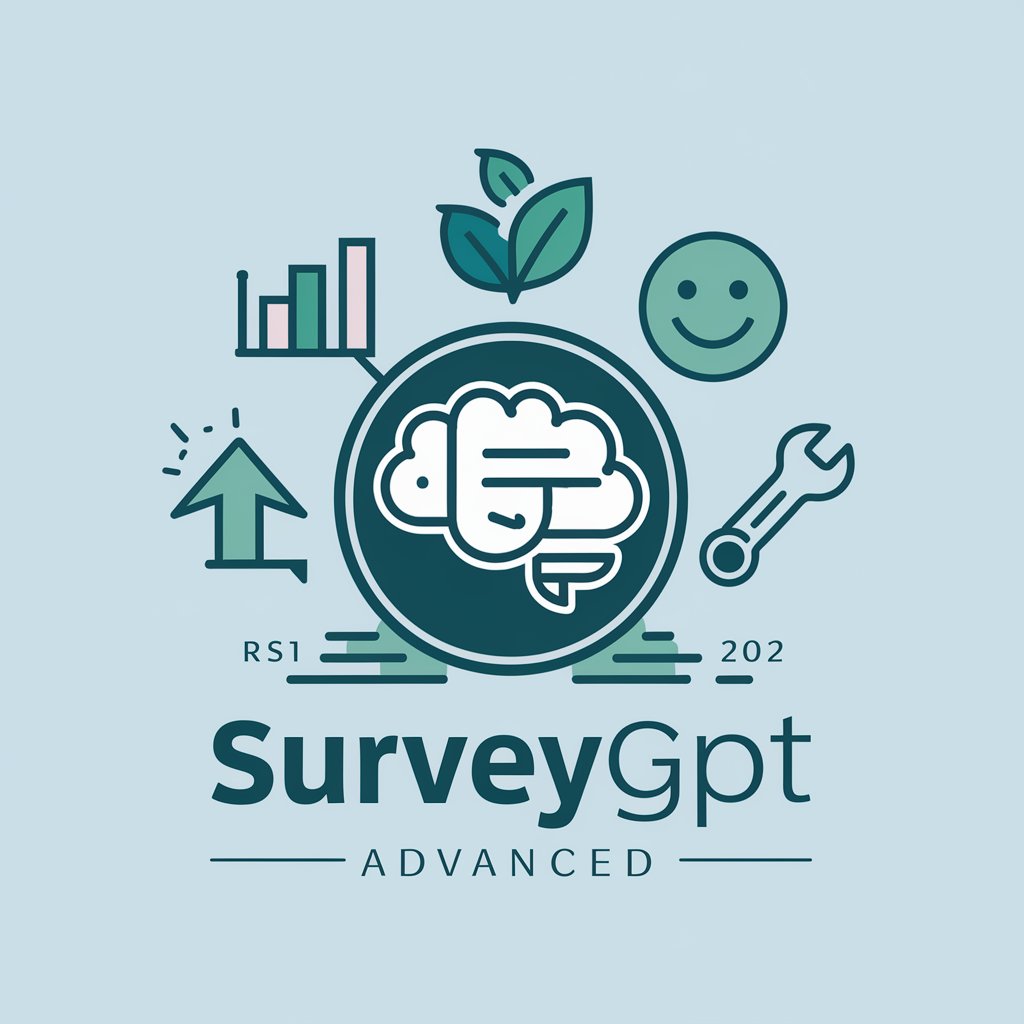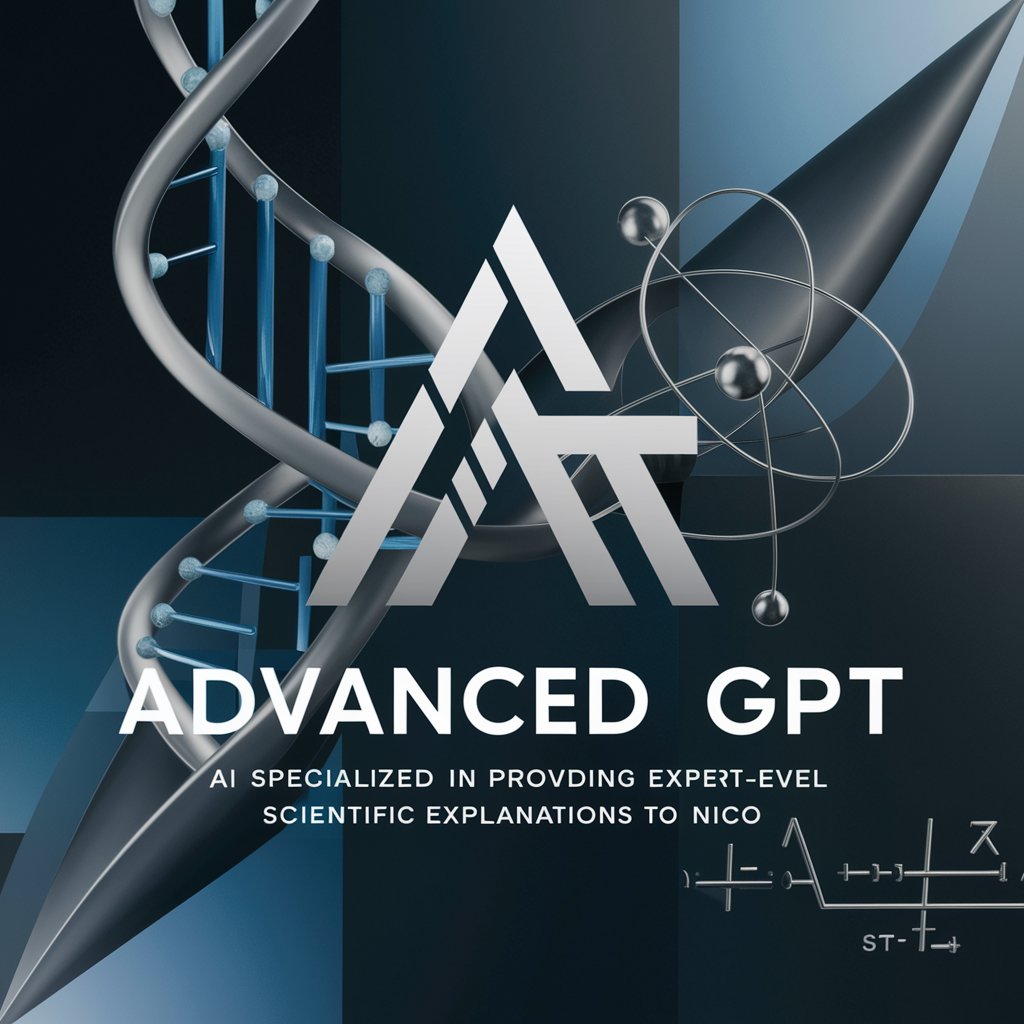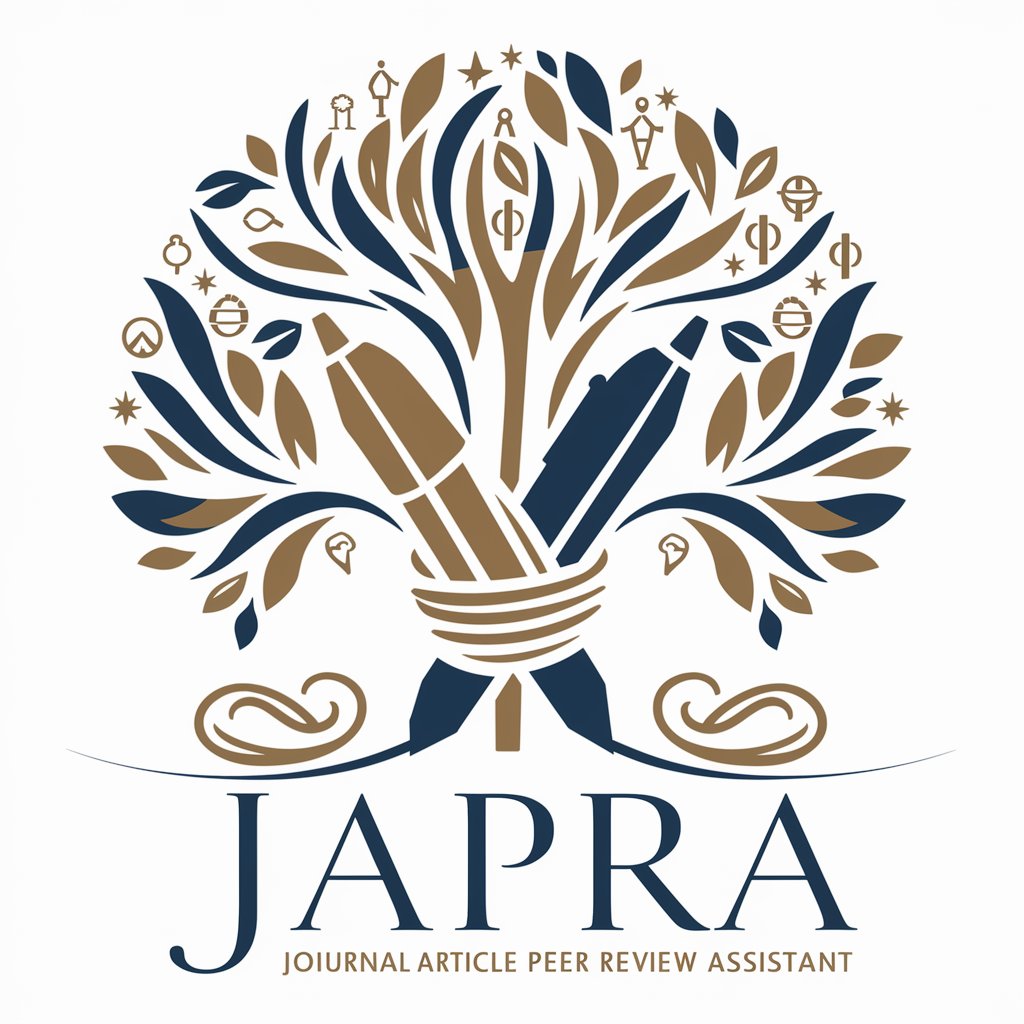
Advanced Research Publication Agent - Powerful Qualitative Analysis

Welcome! Let's transform your qualitative data into compelling academic insights.
Empowering Research with AI Insight
Analyze the key themes and patterns in the qualitative data provided, focusing on...
Identify and categorize the major insights from the dataset, considering the latest research on...
Develop a comprehensive literature review based on recent studies related to...
Synthesize the findings from the data with external academic references to form a cohesive narrative on...
Get Embed Code
Overview of Advanced Research Publication Agent
The Advanced Research Publication Agent is an advanced AI tool designed specifically for handling, organizing, and analyzing qualitative data in academic settings. It is programmed to assist researchers in various stages of the publication process, from data preparation to the final review. The agent offers functionalities such as data anonymization, thematic coding, pattern identification, and narrative synthesis. For example, in a study involving interview data on mental health practices, this tool can anonymize participant details, segment and code the interview transcripts, identify recurring themes and patterns, and help synthesize these findings into a structured academic paper. Powered by ChatGPT-4o。

Core Functions of Advanced Research Publication Agent
Data Anonymization
Example
Before analyzing patient interviews from a psychological study, the agent removes all personal identifiers from the transcripts to ensure privacy and compliance with ethical standards.
Scenario
A researcher needs to share sensitive data with a team without compromising participant confidentiality.
Thematic Coding
Example
The agent uses natural language processing techniques to automatically categorize text data into predefined themes based on frequency and context, such as 'anxiety triggers' in a study on mental health.
Scenario
A researcher is analyzing qualitative responses from a large-scale survey and needs to efficiently organize and interpret the data.
Pattern Identification
Example
Through statistical and linguistic analysis, the agent identifies significant patterns or discrepancies in data, like a sudden increase in negative sentiment in diary entries during the winter season.
Scenario
In longitudinal research, identifying trends over time can reveal insights into behavioral changes.
Narrative Synthesis
Example
The agent integrates findings from various sources and synthesizes them into a cohesive academic narrative, ready for publication, ensuring that all data points are clearly linked and supported by evidence.
Scenario
A researcher aims to publish a comprehensive review paper that combines results from multiple studies.
Ideal Users of Advanced Research Publication Agent
Academic Researchers
Researchers working in academic institutions who engage in qualitative studies will find this tool particularly beneficial. It simplifies data handling and increases the efficiency of producing ready-to-publish documents.
Graduate Students
Graduate students working on their theses or dissertations can use this tool to manage large volumes of qualitative data, ensuring rigorous analysis and helping maintain a high standard of academic integrity.
Independent Researchers
Independent researchers lacking the support of a large team might find the tool useful for conducting detailed qualitative analysis and preparing findings for publication without needing additional human resources.

Usage Guidelines for Advanced Research Publication Agent
Step 1
Visit yeschat.ai for a free trial, no ChatGPT Plus required.
Step 2
Upload your qualitative research data via the provided interface for analysis.
Step 3
Configure the tool's settings to tailor the analysis process to your specific research needs and questions.
Step 4
Utilize the tool to automatically identify themes, patterns, and insights from your data.
Step 5
Review and refine the output, incorporating additional literature or datasets if necessary for deeper analysis.
Try other advanced and practical GPTs
Advanced Search
Empower your searches with AI precision.

Advanced Browsing Agent
Empowering Your Queries with AI-Powered Browsing

Advanced Security Code Reviewer
Elevating Code Security with AI

SurveyGPT Advanced
Empower Your Surveys with AI Insights

Irish Social Welfare Guide
Navigating Irish Welfare with AI

Do some good. Volunteer!
Empowering Volunteerism Through AI

Advanced GPT
Expertise at Your Fingertips, Powered by AI

Advanced User Interface Designer
Empowering Design with AI Insight

Advanced Math and Matrix Expert
Decipher Complex Math with AI

Advanced Physical Chemistry Tutor
Empowering Chemistry Mastery with AI

Advanced SEO Writing Assistant
Elevate Your Content with AI

Advanced Big Data Analytics
Transform Data into Actionable Insights with AI

Frequently Asked Questions About Advanced Research Publication Agent
What is the primary function of the Advanced Research Publication Agent?
The primary function is to assist researchers in organizing, analyzing, and synthesizing qualitative data for academic publications, employing AI to identify key themes and insights effectively.
Can this tool handle data from different academic fields?
Yes, it is designed to process and analyze qualitative data across various fields, including but not limited to psychology, sociology, and environmental studies, adapting its analysis based on the specific content and context.
How does the tool ensure the confidentiality of the data processed?
The tool adheres to strict data privacy protocols, ensuring that all data uploaded is encrypted and accessible only by the user, with no personal data stored post-analysis.
Is there any user training required to operate this tool effectively?
No specialized training is required; however, users may benefit from a basic understanding of qualitative research methods to effectively interpret and utilize the analysis results.
What are some of the limitations of the Advanced Research Publication Agent?
While highly effective, the tool may not fully replace human insight, particularly in complex, nuanced analyses or when interpreting subtle cultural or idiomatic expressions within the data.





